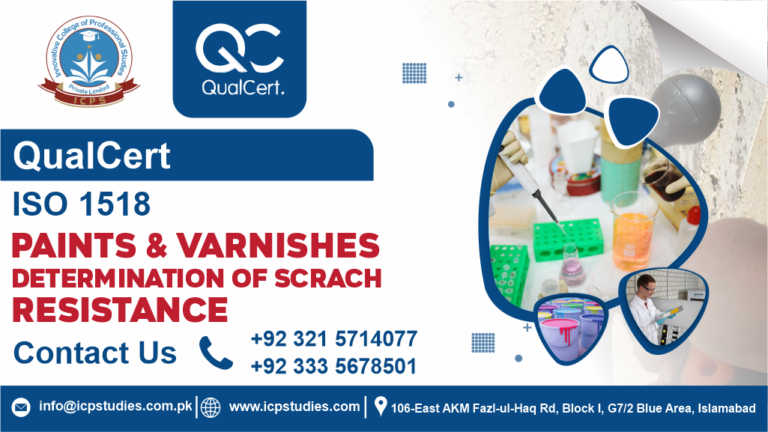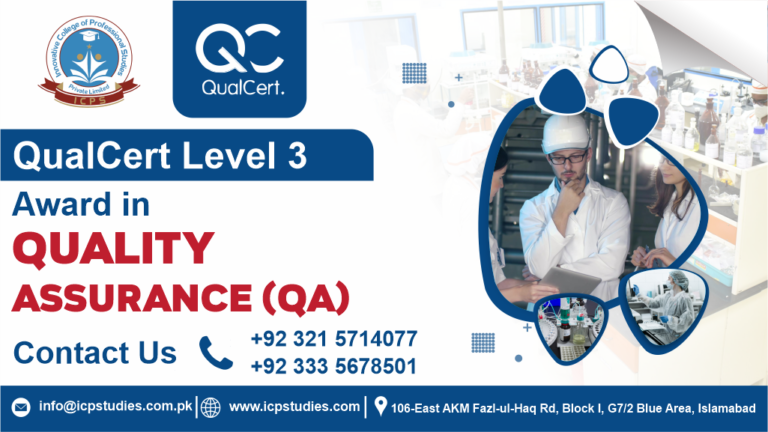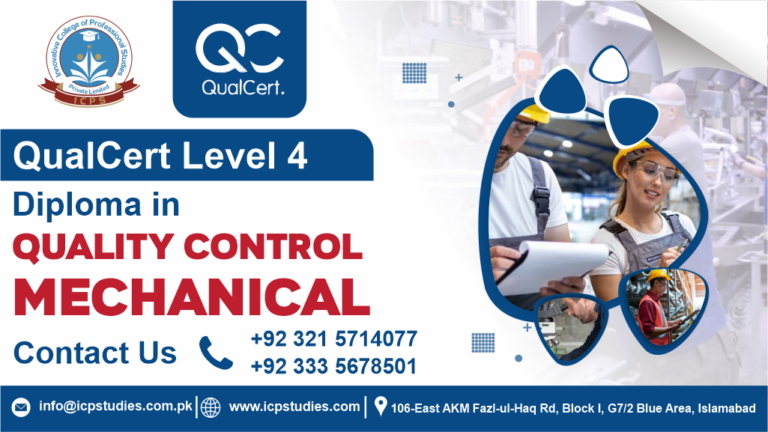In the automotive industry, precise and accurate testing standards are crucial to ensuring the safety, efficiency, and performance of vehicles. The ISO 1585:2020 certification on the “Engine Test Code – Net Power” plays a vital role in this process. QualCert, an Ofqual-regulated UK-based certification body, offers a specialized course that covers this ISO standard comprehensively. This certification is not only recognized in the UK but is also widely accepted across the globe, making it an excellent choice for professionals in the automotive sector.
The ISO 1585:2020 standard outlines the testing methods used to measure the net power of road vehicle engines. It defines the procedures, conditions, and calculations necessary for evaluating engine performance in a standardized manner. QualCert offers an assignment-based course, designed for professionals who want to deepen their understanding of engine testing methods, particularly in line with the global standards set by ISO 1585:2020.
QualCert’s ISO 1585:2020 certification offers an in-depth understanding of engine power testing standards for road vehicles, providing professionals with a globally recognized qualification. By completing this assignment-based course, learners will gain essential skills in engine testing, measurement, and data interpretation, along with an enhanced understanding of international automotive regulations.
Whether you’re looking to enhance your current role or expand your career prospects within the automotive industry, this qualification provides the knowledge and credentials to help you succeed. Enroll in the QualCert ISO 1585:2020 Road Vehicles — Engine Test Code — Net Power today and take the next step towards becoming an expert in vehicle engine performance testing.
All About QualCert ISO 1585:2020 Road Vehicles — Engine Test Code — Net Power
Course Overview
The QualCert ISO 1585:2020 Road Vehicles — Engine Test Code — Net Power certification is a specialized, assignment-based course designed to provide professionals in the automotive industry with a deep understanding of the internationally recognized ISO 1585:2020 standard. This standard outlines the procedures for determining the net power of road vehicle engines, a critical aspect of vehicle performance testing.
Offered by QualCert, a UK-based, Ofqual-regulated certification body, this course is globally recognized and accepted, making it a valuable qualification for anyone involved in vehicle testing, engine design, and performance analysis.
The course covers everything from the principles of engine power testing to hands-on case studies, providing learners with practical insights into executing and interpreting engine power tests. Through flexible, assignment-based learning, participants will gain both theoretical knowledge and the practical skills necessary to meet industry standards and regulations.
This certification serves as an essential qualification for professionals aiming to specialize in engine testing, helping them advance their careers while ensuring their expertise aligns with the latest global automotive standards.
Study Units
- Introduction to Engine Testing Standards
- Test Procedures and Measurement Techniques
- Power and Performance Analysis in Vehicles
- Emission Control and Compliance Testing
- Quality Assurance in Engine Performance Testing
The QualCert ISO 1585:2020 Road Vehicles — Engine Test Code — Net Power certification course is designed for professionals within the automotive industry, and while there are no strict prerequisites for enrollment, the following entry requirements are recommended to ensure learners can succeed in the course:
- Basic Understanding of Automotive Engineering: A foundational knowledge of vehicle systems, especially internal combustion engines and their operation, is beneficial. This could be gained through prior education or work experience in the automotive sector.
- Familiarity with Engine Testing: While not mandatory, having some experience or familiarity with vehicle testing or performance measurement will help learners better understand the course material. This could include prior exposure to engine testing environments or vehicle testing labs.
- English Language Proficiency: Since the course content and assignments are delivered in English, learners should have a basic proficiency in English, especially in technical terminology related to automotive engineering.
- Computer Literacy: As the course is assignment-based and involves accessing online resources and submitting assessments, learners should be comfortable using a computer, internet, and relevant software.
- Commitment to Self-Study: The course is designed around flexible, assignment-based learning, meaning participants should be able to manage their time effectively and engage in independent study.
- Industry-Relevant Role (Recommended): Professionals working in automotive engineering, vehicle testing, or quality control will benefit most from the course. However, individuals from related sectors who are looking to expand their expertise in engine testing may also find the course valuable.
This course is open to individuals who are eager to specialize in engine testing standards and achieve a globally recognized certification. Whether you’re a seasoned professional or someone looking to build upon your existing knowledge, this course is designed to be accessible while offering the depth needed for career progression in the automotive industry.
The QualCert ISO 1585:2020 Road Vehicles — Engine Test Code — Net Power certification course is ideal for a variety of professionals in the automotive industry, as well as individuals looking to expand their expertise in engine testing and performance analysis. This course is particularly valuable for those who are directly involved in vehicle testing, design, and quality control. Below are some key groups who will benefit from this course:
1. Automotive Engineers and Designers
- Engineers working on engine design, optimization, and performance will find this course highly relevant. Understanding the ISO 1585:2020 standard allows them to apply accurate testing methods to assess engine net power and improve vehicle performance.
2. Vehicle Testing Technicians
- Those involved in performing engine tests, including technicians and operators in testing facilities, will benefit from gaining a deeper understanding of the standard test codes for engine power. This course will enhance their ability to conduct tests according to internationally recognized procedures.
3. Quality Control and Assurance Professionals
- Quality assurance experts and those involved in vehicle certification will gain a strong understanding of the procedures for ensuring vehicles meet global performance standards. This knowledge is essential for maintaining high quality and regulatory compliance in automotive manufacturing.
4. Automotive Manufacturers and Suppliers
- Engineers and managers working with automotive manufacturers and suppliers can use this course to ensure their vehicles are compliant with ISO standards for engine testing, improving product quality and reliability.
5. Automotive Consultants and Trainers
- Consultants who provide guidance to automotive businesses on testing standards and compliance will find this course helpful for expanding their expertise and offering better advice to clients. Trainers who teach engineering and testing principles can use the content to enhance their training programs.
6. Students and Graduates in Automotive Engineering
- Recent graduates or students pursuing a career in automotive engineering or testing will benefit from this course as a way to specialize in engine testing and gain a globally recognized qualification that can enhance their career prospects.
7. Research and Development (R&D) Teams
- Professionals working in research and development, particularly those focused on engine performance, vehicle testing, and technology innovation, will gain practical insights into standardized testing methods that can inform their work.
8. Regulatory Bodies and Compliance Officers
- Individuals responsible for regulatory compliance in the automotive industry can use this course to understand the global standards for engine testing, ensuring that their operations align with ISO regulations.
9. Automotive Industry Managers
- Managers in the automotive sector, particularly those overseeing testing labs, production, and quality control departments, will find this course beneficial to better understand engine performance metrics and improve operational processes.
Whether you’re an experienced professional looking to formalize your expertise or someone new to the field who wants to gain specialized knowledge, this course will equip you with the tools to navigate engine testing standards and advance your career within the automotive industry.
Learning Outcomes
- Understand ISO 1585:2020: Grasp the principles and importance of the ISO 1585:2020 standard in engine testing.
- Identify Key International Standards: Recognize other critical global standards related to engine power measurement and testing.
- Fundamentals of Engine Performance Evaluation: Learn the essential concepts involved in evaluating engine performance and efficiency.
- Role of Standardization: Understand how standardization ensures accuracy and reliability in engine testing procedures.
- Impact of Testing Standards: Assess the broader influence of testing standards on automotive engineering, compliance, and industry best practices.
Test Procedures and Measurement Techniques
- Apply Standardized Procedures: Learn to apply standardized methods for measuring engine net power according to ISO 1585:2020.
- Utilize Testing Equipment: Gain proficiency in using the appropriate tools and instrumentation to collect accurate data during engine tests.
- Analyze Measurement Accuracy: Examine factors that influence the accuracy and repeatability of test results, ensuring reliable outcomes.
- Safety Protocols in Engine Testing: Implement essential safety measures and best practices in engine testing environments.
- Interpret Test Data: Learn to interpret engine test data to ensure full compliance with ISO 1585:2020 and industry standards.
Power and Performance Analysis in Vehicles
- Evaluate Engine Power Output: Assess the power output and overall performance characteristics of vehicle engines.
- Engine Design and Power Output: Understand how different engine design parameters influence net power and performance.
- Performance Curves and Data Analysis: Use performance curves and data analysis techniques to optimize engine performance.
- Benchmark Comparison: Compare test results with manufacturer specifications and industry benchmarks to evaluate engine performance.
- Identify Performance Issues: Recognize potential engine performance problems and develop corrective action plans to address them.
Emission Control and Compliance Testing
- Emission Control Regulations: Understand the importance of emission control standards in the context of engine performance testing.
- Testing Emissions Alongside Power Output: Learn to apply testing techniques that measure both emissions and engine power output simultaneously.
- Environmental and Regulatory Compliance: Ensure that engine performance tests align with environmental regulations and industry standards.
- Impact of Emission Control Technologies: Evaluate how emission control technologies affect engine efficiency and performance.
- Interpret Emission Data: Interpret emission test results to comply with regulatory requirements and support quality assurance practices.
Quality Assurance in Engine Performance Testing
- Quality Control Measures: Apply quality control protocols to ensure consistency and accuracy in engine power testing procedures.
- Ensure Test Accuracy and Repeatability: Maintain high standards of repeatability and accuracy through standardized testing methods.
- Calibrate Testing Equipment: Learn to maintain and calibrate testing equipment to ensure reliable results.
- Documentation and Reporting: Develop proper documentation and reporting practices in line with ISO 1585:2020 to support transparency and traceability.
- Evaluate Testing Outcomes: Assess test outcomes to enhance engine design, operational efficiency, and overall vehicle performance.
FAQs QualCert ISO 1585:2020 Road Vehicles — Engine Test Code — Net Power







